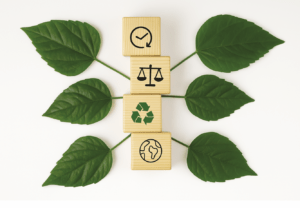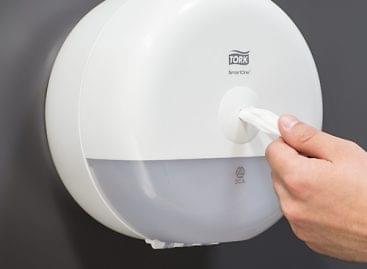Clean Industrial Deal: everything about the green transition and how to finance it
PwC Magyarország hosted a webinar to share the details of the Clean Industrial Deal – the new strategy that the European Commission (EC) says will define the next era of industry on the continent.
This article is available for reading in Trade magazin 2025/8-9.
The Clean Industrial Deal is the Green Deal (launched back in 2019) taken a step further, with a new name and new focus: the focus has shifted from “green” to “clean”, signalling the EU’s intention to pursue sustainability objectives within a more rigorous framework of economic competitiveness..

Clean Industrial Deal aims to reform energy-intensive industries and promote clean technologies
Flexibility on the energy market and stable prices
One of the key objectives is to make the energy market work more efficiently. Beáta Szoboszlai, PwC’s head of energy and utilities consulting underlined that electricity prices in the EU are still largely determined by the price of natural gas, and the EC’s goal is to reduce its impact on electricity prices in the long term. The proliferation of long-term Power Purchase Agreements (PPAs) can be an important solution. Gábor Benedek, the head of PwC’s development policy team stressed that the strategy can only be successful if industry players have access to the necessary resources. The EUR 100bn investment package announced in the programme is just the first step. The funding mix is based on three pillars: EU funds, national grants and instruments to mobilise private capital.
According to János Faragó, PwC Legal’s lawyer this also requires the simplification of state aid rules. He pointed out that the practical application of tax incentives is often difficult. The strategy prioritises low-emission, innovative technologies. Beáta Szoboszlai believes, the integration of clean and renewable energy sources, flexibility and the combination of technologies will be essential for the energy transition. The future lies in smart systems integration, where different technologies work in a coordinated fashion.

Development policy must align with EU directives to ensure that domestic companies can access new funding opportunities
Circular economy: new rules and a “green VAT”
According to Péter Zalai, the head of PwC legal’s green investment working group, the EU’s objective is to keep its strategic raw materials in the circular economy longer. In order to achieve this goal, a new EU regulation called the Circular Economy Act is expected to enter into force in 2026, which will tighten waste management rules and focus on the recycling of critical raw materials. János Faragó also called attention to two other innovative proposals: one is the concept of a “green VAT”: this would allow used, refurbished or recycled products to be sold at a lower VAT rate. Another important area for development is the creation of a common legal framework for virtual Power Purchase Agreements (vPPAs). In connection with financing instruments, Gábor Benedek highlighted that it will be very important for companies to understand how to integrate into European cooperation networks and how to benefit from direct funding from Brussels. The experts agreed that the Clean Industrial Deal goes beyond sustainability: it isn’t just environmental policy, but also a conscious industrial policy.
Related news
Tork at SIRHA Budapest: hygiene, efficiency and sustainability for the HoReCa sector
🎧 Hallgasd a cikket: Lejátszás Szünet Folytatás Leállítás Nyelv: Auto…
Read more >EU poultry meat rules are changing: the 12-week limit for “free-range” labeling is being relaxed during a pandemic
🎧 Hallgasd a cikket: Lejátszás Szünet Folytatás Leállítás Nyelv: Auto…
Read more >Bonduelle achieves B Corp™ certification worldwide
🎧 Hallgasd a cikket: Lejátszás Szünet Folytatás Leállítás Nyelv: Auto…
Read more >Related news
Festival buzz at the 60th anniversary EuroShop trade fair
🎧 Hallgasd a cikket: Lejátszás Szünet Folytatás Leállítás Nyelv: Auto…
Read more >Historic price reduction at ALDI
🎧 Hallgasd a cikket: Lejátszás Szünet Folytatás Leállítás Nyelv: Auto…
Read more >A stable compass in the Hungarian FMCG sector for 20 years
🎧 Hallgasd a cikket: Lejátszás Szünet Folytatás Leállítás Nyelv: Auto…
Read more >







